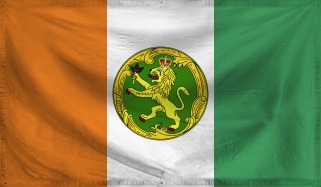Fine! Urban Communes is now ranked with a score of 7.07 (Mostly Free).

Advertisement

![]() by Plaetopia » Sat Jul 13, 2019 3:12 am
by Plaetopia » Sat Jul 13, 2019 3:12 am
Plaetopia Post: Plaetopian economy slowly recovering | A new law passed by the Federal Assembly explicitly recognizes persecution because of sexual orientation as a valid reason for asylum in Plaetopia
![]() by Nucleous Union » Thu Jul 25, 2019 8:26 am
by Nucleous Union » Thu Jul 25, 2019 8:26 am

![]() by Pooshland » Thu Jul 25, 2019 8:57 am
by Pooshland » Thu Jul 25, 2019 8:57 am

![]() by S-Hertogenbosch » Sat Jul 27, 2019 6:39 am
by S-Hertogenbosch » Sat Jul 27, 2019 6:39 am
✠ Als wij van ertrijck moeten scheijden, zoe bidden wij Onser Vrouwen, dat sij ons moet gheleijden, amen. ✠ | When we'll have to part this earth, we'll pray to Our Lady, that she will guide us. Amen. |

![]() by Plaetopia » Sat Jul 27, 2019 10:36 am
by Plaetopia » Sat Jul 27, 2019 10:36 am
Plaetopia Post: Plaetopian economy slowly recovering | A new law passed by the Federal Assembly explicitly recognizes persecution because of sexual orientation as a valid reason for asylum in Plaetopia
![]() by Prusenreich » Sat Jul 27, 2019 11:08 am
by Prusenreich » Sat Jul 27, 2019 11:08 am

![]() by Democratic Republic of Eiria » Sat Jul 27, 2019 12:58 pm
by Democratic Republic of Eiria » Sat Jul 27, 2019 12:58 pm

![]() by HerpDeDerp » Sat Jul 27, 2019 4:41 pm
by HerpDeDerp » Sat Jul 27, 2019 4:41 pm

![]() by Kamotel » Sat Jul 27, 2019 11:26 pm
by Kamotel » Sat Jul 27, 2019 11:26 pm

![]() by Aikoland » Sun Jul 28, 2019 3:00 pm
by Aikoland » Sun Jul 28, 2019 3:00 pm

![]() by South Javad » Mon Jul 29, 2019 9:07 pm
by South Javad » Mon Jul 29, 2019 9:07 pm

![]() by Eispana » Mon Jul 29, 2019 11:41 pm
by Eispana » Mon Jul 29, 2019 11:41 pm

![]() by Anovan » Tue Jul 30, 2019 3:24 am
by Anovan » Tue Jul 30, 2019 3:24 am

![]() by Catarra » Tue Jul 30, 2019 5:35 am
by Catarra » Tue Jul 30, 2019 5:35 am

![]() by Refuge Isle » Tue Jul 30, 2019 11:44 am
by Refuge Isle » Tue Jul 30, 2019 11:44 am

![]() by Arameht » Wed Jul 31, 2019 7:41 am
by Arameht » Wed Jul 31, 2019 7:41 am

![]() by Pasta la Pizza » Thu Aug 01, 2019 10:38 am
by Pasta la Pizza » Thu Aug 01, 2019 10:38 am

![]() by Estainia » Thu Aug 01, 2019 12:36 pm
by Estainia » Thu Aug 01, 2019 12:36 pm

![]() by Carlotina » Sat Aug 03, 2019 9:43 am
by Carlotina » Sat Aug 03, 2019 9:43 am

![]() by Switmerica » Sun Aug 04, 2019 11:00 am
by Switmerica » Sun Aug 04, 2019 11:00 am

![]() by Synne Industries » Sun Aug 04, 2019 1:02 pm
by Synne Industries » Sun Aug 04, 2019 1:02 pm

![]() by Aleixandria » Sun Aug 11, 2019 4:01 pm
by Aleixandria » Sun Aug 11, 2019 4:01 pm

![]() by Greater Carloso » Sun Aug 11, 2019 4:47 pm
by Greater Carloso » Sun Aug 11, 2019 4:47 pm

![]() by Banija » Tue Aug 13, 2019 10:32 am
by Banija » Tue Aug 13, 2019 10:32 am

![]() by Charellia » Tue Aug 13, 2019 11:54 am
by Charellia » Tue Aug 13, 2019 11:54 am
Advertisement
Return to Factbooks and National Information
Users browsing this forum: Marquesan, United Citizens Republics
Advertisement